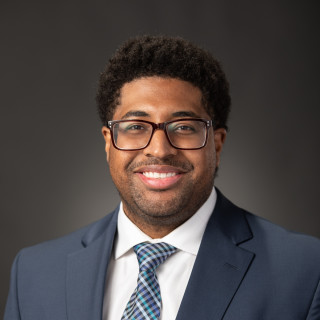As I approached the end of my residency training, and was subsequently deemed competent enough to practice independently, there still remained many unanswered questions. These questions were not about a particular case or a diagnostic dilemma. Rather, they pertained to financial topics, such as how I would leverage my newfound status as an attending to secure a fair wage, and then how I would allocate this income to make up for the years of lost income and six-figure debt I accrued during my training, unlike most of my nonmedical contemporaries.
Medical school training continues to evolve in a way that encompasses more nonclinical topics, in an effort to train well-rounded physicians. In my opinion, to achieve this, medical education should also cover topics that would enable trainees to leverage their unique skill set to make up for the costs incurred from medical school and postgraduate training. Skills such as contract negotiation, understanding different benefit plans, asset allocation, debt management, retirement planning, insurance, and other topics related to financial literacy would be a major boon for upcoming physicians — allowing them to optimally manage their finances from their first paycheck as a resident.
Ideally, these topics would be part of the nonclinical curricula, along the same lines as medical ethics and law, health care policy, research and statistics, and professional development, just to name a few. Each of these are framed in a way that provides future guidance. Education on medical ethics and law is provided to avoid future legal dilemmas. Lessons on health care policy can help you gain an understanding of the complex medical system, navigate it, and better advocate for your patients. Research and statistics are taught so that you may critically analyze journal articles and determine how best to apply new medical knowledge to patient care. Instruction on professional development is provided to make us more culturally sensitive and better with self-care, stress, and time management. Similarly, topics pertaining to financial literacy can be framed in a way that focuses on providing young doctors with necessary knowledge.
My general incompetence in many of these skills did not hit home until I began pursuing my Master of Business Administration degree during the latter half of my residency. It was at this point I realized how ill-prepared I was. In retrospect, some of the advice I had received from my senior colleagues and attendings, although well-intentioned, was in direct contradiction to the lessons I learned from academic financial literature. Of course, I am not advocating that medical schools start teaching their students about capital asset pricing models, but some practical education on the topics above would go a long way to achieving a holistic training model.
Perhaps for others it may be easier to hire an adviser or wealth management service and let someone else take care of these matters while they focus on taking care of their patients. But this decision, to give up some degree of control and ownership of personal finances, should be an optional decision, rather than one that is rooted in a lack of knowledge or familiarity. For those who are particularly motivated and aspire to be financial DIYers, there are enough resources out there for them to gain sufficient knowledge. But this approach is time-consuming, costly, and oftentimes not implemented until after years of working. By that time, they may have made suboptimal decisions that have resulted in future lost income or higher costs. Unlike many of our nonmedical school contemporaries, we do not have the luxury of time on our side to learn on the go and through trial and error. With much of our earning potential not realized until our late 20s and early 30s, this makes it doubly crucial that we have some functional financial literacy so that we can make suitable decisions and ask appropriate questions from the outset.
Overall, financial education should not be seen as an optional add-on to medical training, but rather as an essential component of the curriculum. By integrating financial literacy into medical education, future physicians will be empowered to make informed and wise decisions about their own financial health. Ultimately, such education will enable physicians to maximize their earning potential, manage their finances effectively, and perhaps most importantly, focus on their primary goal — delivering the best possible care to their patients.
Share your experience with financial education in the comment section.
Dr. Abdillahi M. Omar is the chief resident at the Detroit Medical Center — Wayne State University Diagnostic Radiology residency program. He is also an MBA candidate at the University of Michigan Stephen M. Ross School of Business. He enjoys weightlifting, mixed martial arts, PC gaming, and is a blockchain technology and cryptocurrency enthusiast. Dr. Omar was a 2022–2023 Doximity Op-Med Fellow.
Image by Denis Novikov / Getty







